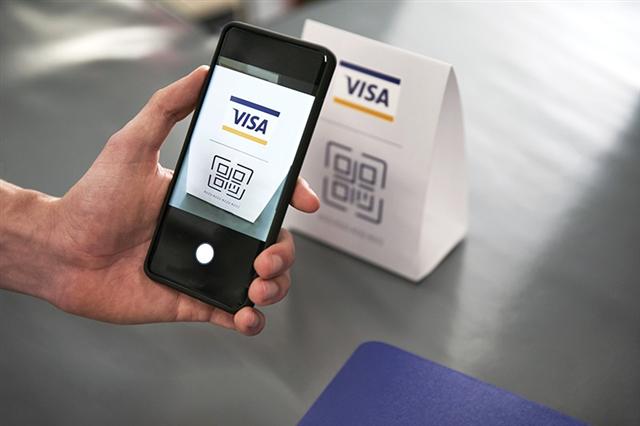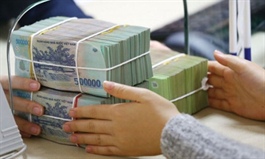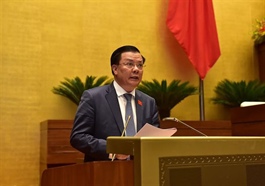Vietnam leading the regional pack in embracing a cashless society
Vietnam leading the regional pack in embracing a cashless society
The Vietnamese government is looking to take the country towards relying less on cash when making purchases. Dang Tuyet Dung, Visa country manager for Vietnam and Laos, talked to VIR’s Hoang Anh about the potential future of a cashless society for the country.

Dang Tuyet Dung, Visa country manager for Vietnam and Laos
|
What is the status of cashless payments in Vietnam right now?
Digital payments in Vietnam, while relatively new, are gaining strong traction in the market – and this trend is evidenced by a number of different statistics. Firstly, according to our advanced global processing network VisaNet, the value of the transactions conducted on Visa cards in Vietnam increased 39 per cent on-year in 2019, while the overall number of transactions grew by 54 per cent. Overall, people are using their Visa cards more often, and they’re using them to spend more, all of which are fundamentally positive trends.
Recently, we commissioned the Visa Consumer Payment Attitudes study, which surveyed a broad demographic mix of consumers across the country on their perspectives and expectations around a variety of different payment methods. One of the standout statistics from the study was that 74 per cent of consumers in Vietnam expect to increase their use of cashless payment methods in the next 12 months.
We also conducted this survey across several Southeast Asian markets, and Vietnam actually had the highest affirmative response to this particular question. Again, this demonstrates a very real sense positivity and interest around digital payments in this market.
Contactless methods of pay are one of the next big things in digital payments. How are consumers taking to this new technology?
Contactless payments are a new technology that allows you to simply tap your Visa card, or your smartphone or smart device, on a terminal to pay rather than having to swipe or insert a card. It’s based on secure chip technology. Contactless cards have a tiny antenna which can be read by point of sale (POS) terminals when they are four centimetres away or less.
During this process, the card never needs to leave your hand, and it’s extremely fast – POS terminals can typically read a contactless card or device in less than half a second.
Consumers in Vietnam are starting to embrace contactless payments as a fast, secure, and more convenient way to pay. The Visa Consumer Payment Attitudes study indicates that 37 per cent of respondents are using contactless card payments, while interestingly even more are using mobile contactless payments, at 42 per cent.
For those that are already using contactless payments, the vast majority have found that they are becoming a regular payment method in their lives, with 85 per cent using them at least once a week.

Digital methods are fast becoming a daily habit for many in Vietnam
|
What benefits are there for merchants to accept digital payments?
By accepting digital payments, merchants are opening up their businesses to potential customers from all around the world. Put it this way: I think we can all relate to being in a situation where you just happen to walk past a store and something catches your eye that you really like, but you don’t have any cash in your wallet. If the shop has the ability to accept digital payments, then that’s one sale they may not have otherwise made.
This is particularly important for businesses that get a lot of traffic from tourists – these customers often don’t want to be carrying large sums of foreign currency around, and yet they’re also often the ones who want to make impulse purchases.
Outside of being able to encourage more business, digital payments reduce the amount of labour required from employees, both in terms of the amount of time spent handling cash during a transaction, as well as counting cash from the till and banking. These activities can be labour intensive, and ultimately draw employees away from undertaking more productive activities on the job.
The fact of the matter is that cashless transactions benefit both businesses and customers, and that these benefits go both ways. So when customers have a better experience, the merchant benefits from increased transactions and shopper loyalty, and when merchants are operating more efficiently and effectively, they can better serve customers. It’s really a win-win proposition.
What do you think needs to be done to encourage more Vietnamese consumers to go cashless?
We at Visa support the Vietnamese government’s goal of transitioning to a more cashless economy – we’re working closely with a number of stakeholders in order to make this objective a reality. But what we’re also seeing is strong public support for the measure, too: in our Visa Consumer Payment Attitudes study, 79 per cent of Vietnamese respondents indicated that they support the government’s desire to go cashless, which was the highest rate in the region.
I think educating consumers and merchants on the benefits of digital payments is key to greater adoption. Also, we need to provide consumers with more opportunities to use digital payments, and this also links into the previous point because we need to work closely with merchants in particular to help them understand the vast benefits digital payments bring to their businesses.
When we surveyed Vietnamese consumers, we found that of those that were carrying less cash, the most commonly stated reason for doing so is that they found more places were offering digital payment options. If we can continue this trend of merchants accepting digital payments, then more shoppers are likely to make the switch to paying by card, or by smartphone, from paying by cash. We’re also working at the moment to encourage not just cashless payments, but contactless payments, too. We will run promotions to encourage consumers to try new ways of paying, which ultimately will help to change payment behaviours in the future.
How do you see the payments ecosystem in Vietnam evolving in the short and medium term?
We’re seeing incredible opportunities with more consumers engaging in e-commerce and using mobile payments. I believe one of the big changes we’re going to see is that there will soon be a generation of consumers in Vietnam for whom using digital payments is second nature. They will also be accustomed to paying using their smartphone or smartwatch.
Vietnamese consumers are fast adopters of new technology, and with the digital economy increasingly becoming a part of people’s day-to-day lives, so too digital payments will be a part of everyday life.























